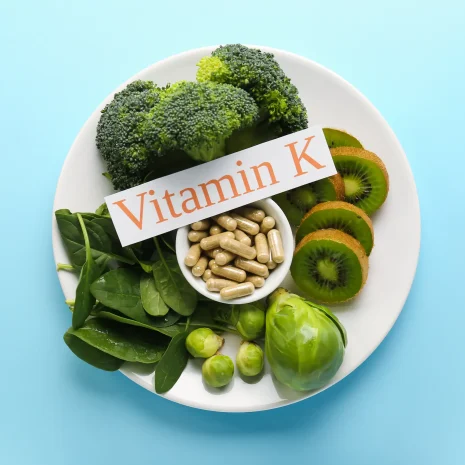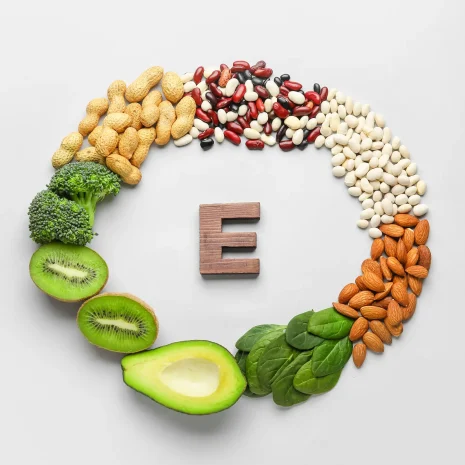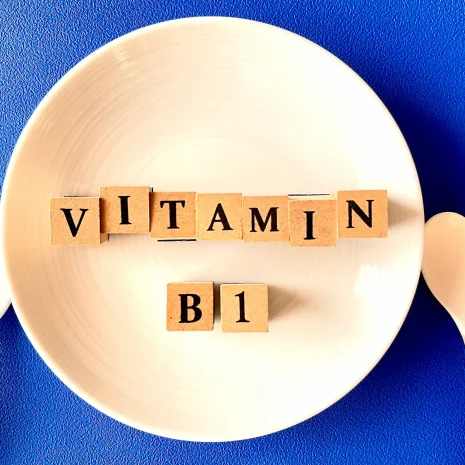What does niacinamide do?: The Essential Vitamin B3 Derivative
Sometimes known as the skin’s best friend, niacinamide is a form of vitamin B3 that is often used in skincare products and multivitamin supplements.
In this article, we explore what niacinamide’s role in the body, the advantages it brings, how you can boost your niacinamide levels and who might benefit from niacinamide supplementation. Keep reading to learn more.
What is niacinamide?
Vitamin B3 exists in two primary forms: niacin (nicotinic acid) and niacinamide (nicotinamide). Nicotinic acid is predominantly found in foods such as meat, poultry, and fish, contributing to cholesterol reduction and lowering heart disease risk.
Niacinamide, however, is frequently used for its therapeutic properties, targeting conditions like diabetes, cancer, osteoarthritis, acne, and signs of aging. This powerful compound plays a crucial role in cellular functions, including interaction and DNA repair.
What foods are high in niacinamide?
Like many vitamins and minerals, niacinamide can be sourced in your diet, meaning that eating healthy, non-processed foods can help you to keep your niacinamide levels up and reap the benefits.
Here are some dietary sources of niacinamide in milligrams per 100 grams:
| Food Type | Niacinamide Level (mg/100g) |
| Red Meat | 100 mg |
| Chicken | 70 mg |
| Fish | 50 mg |
| Peanuts | 100 mg |
| Coffee | 50 mg |
| Beans | 10 mg |
| Barley | 20 mg |
Besides these foods, niacinamide can also be acquired from wheat, rice, potatoes and soybeans. Notably, milk is rich in nicotinamide riboside, another variant of vitamin B3.
What is niacinamide good for?
Niacinamide offers a myriad of benefits for skin health. When applied topically or ingested as a supplement, it showcases significant anti-inflammatory effects. One of its prominent benefits is its ability to alleviate symptoms associated with rosacea, sometimes referred to as facial erythema. Numerous scientific studies indicate that niacinamide can effectively treat acne and redness while mitigating UV-induced skin damage.
Who should use niacinamide? Safety and Recommendations
Niacinamide is considered a safe ingredient by international health authorities, including the UK’s National Health Service (NHS), and is suitable for individuals of various ages. Here are the suggested daily intakes of niacinamide in micrograms:
- Ages 1-3: 10 mg
- Ages 4-8: 15 mg
- Ages 9-13: 20 mg
- Ages 14-18: 30 mg
- Ages 18 and older: 35 mg
For pregnant or breastfeeding women, it is advised to limit niacinamide intake to a maximum of 35 mg per day. Diabetic individuals should exercise caution when incorporating niacinamide supplements and consistently monitor their blood sugar levels under medical supervision.
Final Thoughts: Your Skin Deserves Niacinamide
In summary, niacinamide is a versatile and essential compound that can enhance both skincare routines and overall health. Whether you’re dealing with acne, uneven skin tone or signs of aging, consider adding niacinamide to your beauty arsenal for a healthier and more radiant complexion.
While multivitamins can offer valuable support for overall health, it is essential to recognize that a balanced diet should remain the cornerstone of nutritional well-being. Multivitamins are intended to be a complementary measure and should not be considered a substitute for a diverse and nutritious food intake.
Note: It is strongly advised that individuals consult a healthcare professional prior to initiating any supplement, particularly if they have existing health conditions, are taking prescribed medications, or are pregnant.








